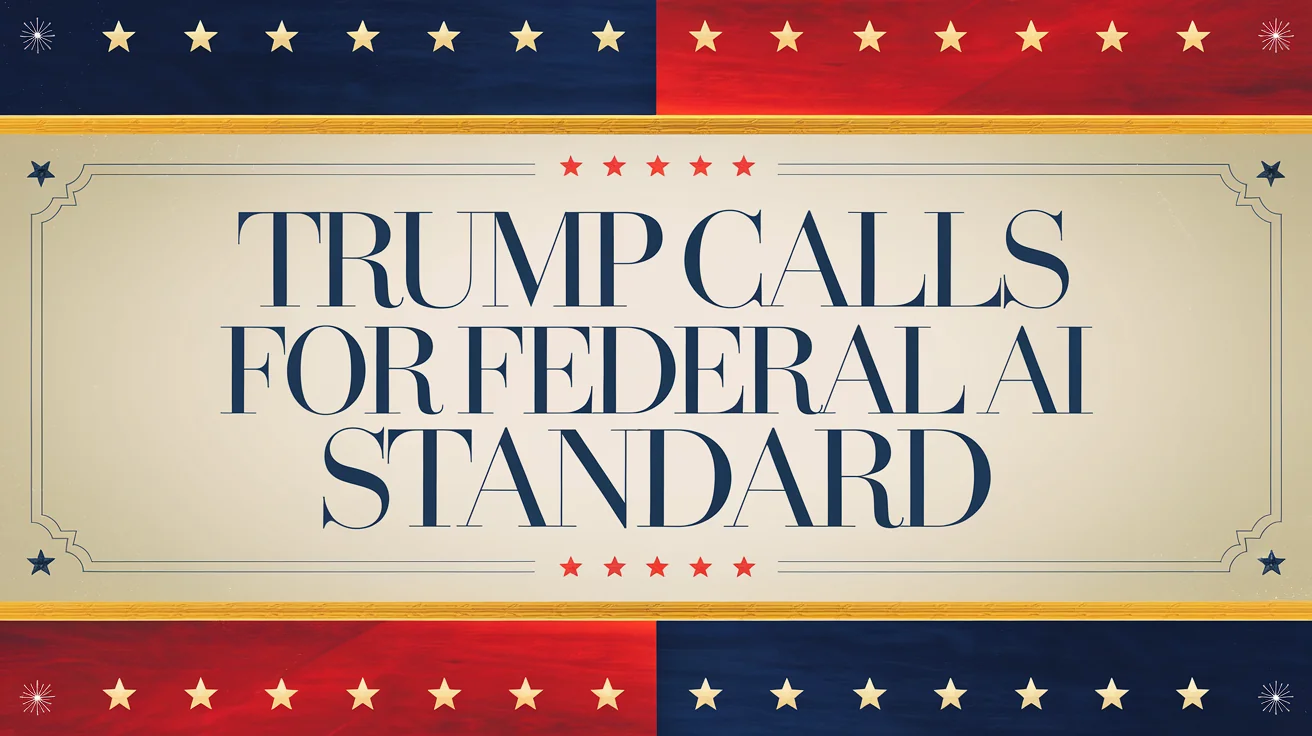Trump Calls for Federal AI Standard

As the landscape of artificial intelligence (AI) evolves, President Donald Trump has recently emphasized the need for unified federal regulations regarding AI to maintain the United States’ competitive edge against countries like China. In social media posts, Trump called on Congress to establish a single standard, indicating that the current state-level regulations are creating an unnecessary compliance burden that could hinder economic growth.
Federal AI regulation proposal
Trump’s urgent call for federal intervention comes amidst discussions among House Republicans, who are considering adding preemption language to the National Defense Authorization Act (NDAA). This legislation, which Congress must pass, might override existing state AI laws to create nationwide coherence. Trump pointed out in his posts that investment in AI has made the U.S. economy incredibly dynamic and that too much state regulation threatens this growth engine. He insisted that without unified rules, the U.S. risks losing its foothold in the AI race to China.
Complex regulatory landscape
The frustrations voiced by Trump highlight a growing concern within the tech industry regarding the increasingly fragmented regulatory environment. In 2024 alone, nearly 700 AI-related bills were introduced across 45 states, with 113 of them becoming law. Companies now face a maze of varying requirements, including bias testing and transparency standards that differ significantly from state to state. This complicates the operation for businesses that need to adhere to multiple regulations simultaneously.
Sanchit Vir Gogia, a chief analyst and CEO at Greyhound Research, noted that this patchwork of regulations adds significant overhead, complicating compliance and potentially stalling innovation. For organizations that deploy AI services across various states, designing compliant AI models has become a challenge that requires continuous adjustments to meet changing regulations.
Concerns about ideological influence
Trump also expressed concern that certain states are embedding ideological perspectives into AI technologies—coining the term “Woke AI” to describe models reflecting political correctness. This references a controversy from February 2024 when Google’s Gemini image generator produced misleading historical depictions, prompting criticism regarding accuracy and representation. In response to such concerns, the Biden administration instituted an executive order prohibiting federal agencies from acquiring AI systems that do not adhere to standards of truthfulness and ideological neutrality.
National competitiveness and the global landscape
Framing his argument around national competitiveness, Trump echoed sentiments from industry leaders advocating for federal preemption. Prominent figures from companies like OpenAI and Nvidia have voiced similar concerns regarding China’s centralized regulatory approach, which currently positions them well in the AI field. However, experts like Gogia argue that success in AI is not solely rooted in regulation but also in the ability to demonstrate safe, reliable, and trustworthy AI systems.
The uncertain road ahead
The likelihood of Congressional action on Trump’s proposal remains ambiguous. Previous efforts to implement a federal AI preemption faced significant pushback. Earlier votes in the Senate have shown overwhelming opposition to mandates that might hinder state-level regulatory authority. Advocates emphasize the necessity for states to safeguard their residents against potential harms from emerging AI technologies.
Experts caution that even a federal standard may not ease compliance difficulties, suggesting that enterprises should prepare to adopt higher internal governance standards regardless of federal laxity. As Gogia advises CIOs, the most prudent strategy is to adopt rigorous standards, such as those of the EU AI Act, as a baseline for operations, allowing for regional adaptations of systems and documentation to ensure transparency.
Overall, while Trump’s push for federal oversight signals a critical moment in AI governance, the interaction of state and federal policies continues to play a crucial role in shaping the future landscape of artificial intelligence in America.